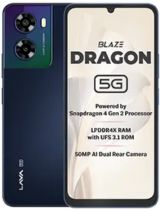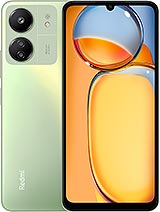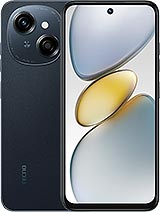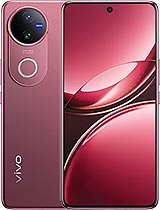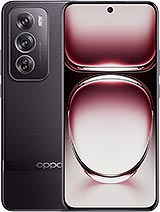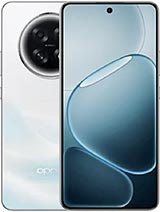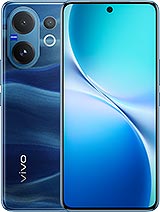Lava Yuva Star 4G alternatives
Tap above to see alternatives.
Vivo T3 Ultra alternatives
Tap above to see alternatives.
Lava Yuva Star 4G

Lava Yuva Star 4G
-
Unisoc SC9863A
28 nm
-
5000 mAh
10W
-
6.75"
720 x 1600 pixels
-
13 MP
1080p@30fps
- Specs
Vivo T3 Ultra

Vivo T3 Ultra
-
Dimensity 9200+
4 nm
-
5500 mAh
80W
-
6.78"
1260 x 2800 pixels
-
50 MP
4K@30/60fps
- Specs
4x1.6 GHz Cortex-A55
4x1.2 GHz Cortex-A55
1x3.35 GHz Cortex-X3
3x3.0 GHz Cortex-A715
4x2.0 GHz Cortex-A510
8GB 256GB (UFS 3.1)
12GB 256GB (UFS 3.1)
(wide), AF
f/1.9, 24mm (wide), 1/1.56", 1.0µm, PDAF, OIS
8 MP
f/2.2, 120˚ (ultrawide), 1/4.0", 1.12µm
1080p@30fps
f/2.0, 21mm (wide), 1/2.76", 0.64µm, AF
1080p@30fps
SIM1: Nano, SIM2: Nano
SIM1: Nano, SIM2: Nano
8 5G bands
n1, n3, n5, n8, n28, n40, n77, n78
In this performance comparison, the Vivo T3 Ultra with its Mediatek Dimensity 9200+ (4nm) performs better than the Lava Yuva Star 4G with the Unisoc Unisoc SC9863A (28nm), thanks to superior chipset efficiency.
Vivo T3 Ultra offers 2 years of OS updates, whereas Lava Yuva Star 4G provides 1 years. For security updates, Vivo T3 Ultra offers 3 years of support compared to Lava Yuva Star 4G's 2 years.
Vivo T3 Ultra features a superior AMOLED display, while Lava Yuva Star 4G comes with an LCD panel. In terms of smoothness, Vivo T3 Ultra offers a higher 120 Hz refresh rate, ensuring fluid scrolling and animations. Both devices deliver the same brightness level at nits. Notably, Vivo T3 Ultra offers a higher screen resolution, resulting in sharper visuals and more detailed content.
Vivo T3 Ultra features a larger 5500 mAh battery, potentially delivering better battery life. Vivo T3 Ultra also supports faster wired charging at 80W, compared to 10W on Lava Yuva Star 4G.
Vivo T3 Ultra includes an IP68 rating, while Lava Yuva Star 4G lacks an official IP rating.
¹ Scores can vary even with the same chipset due to RAM, thermals, and software optimization.

